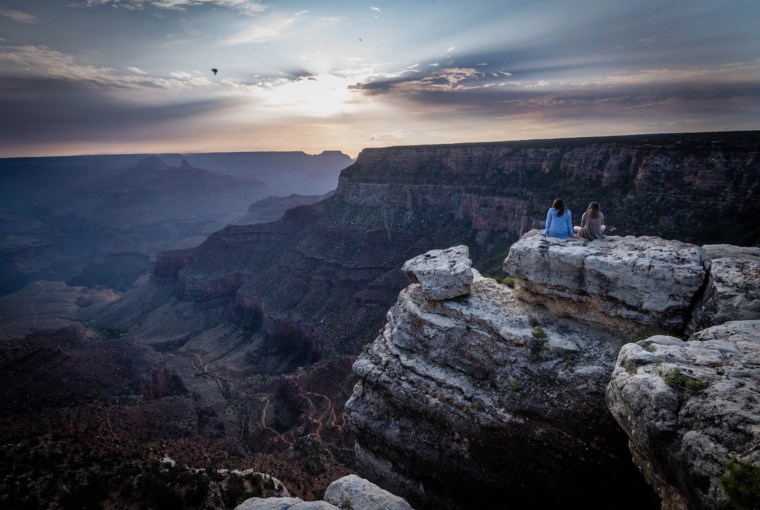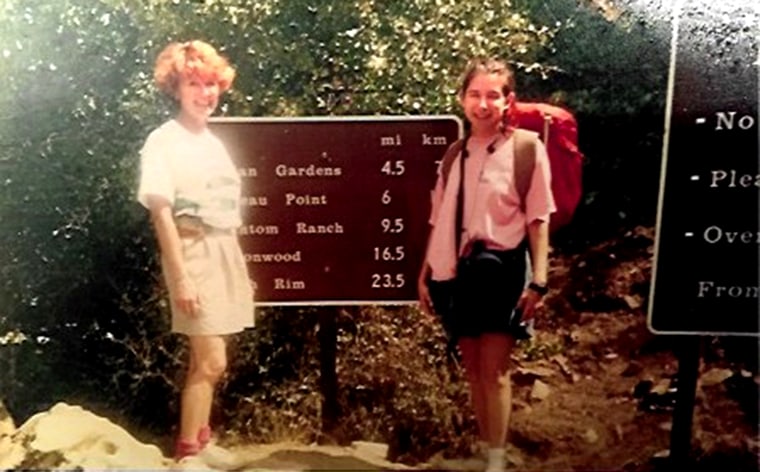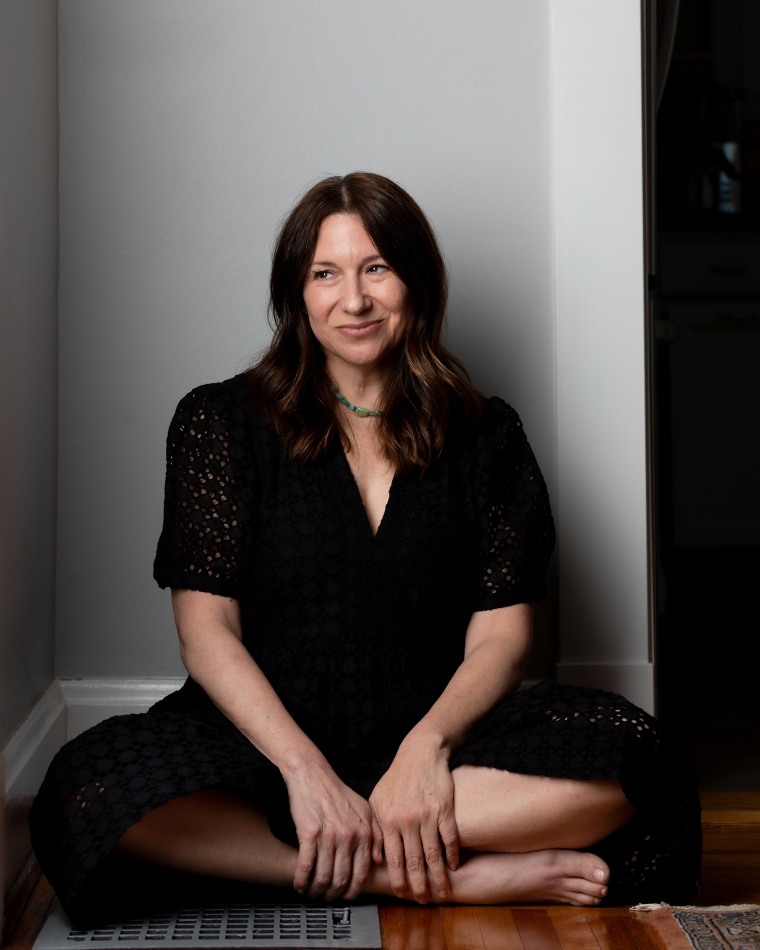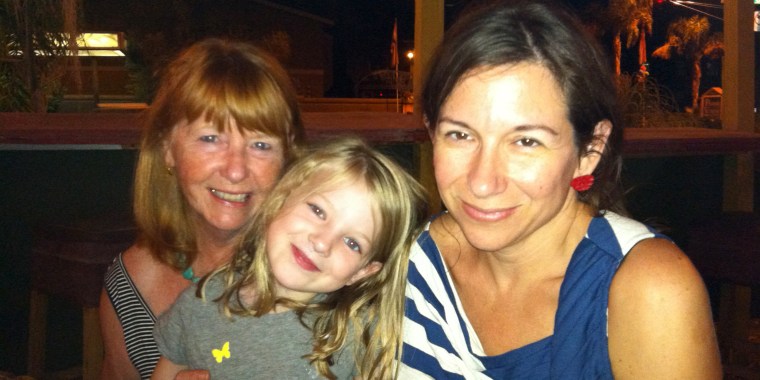This story discusses suicide. If you or someone you know is at risk of suicide please call the U.S. National Suicide Prevention Lifeline at 800-273-8255, text TALK to 741741 or go to SpeakingOfSuicide.com/resources for additional resources.
Not long after Laura Trujillo’s mom took her own life at the age of 66 by jumping from the edge of the Grand Canyon, Trujillo contemplated dying in the same way.
As depression gripped her in the aftermath of the suicide, she wondered “Why am I here and she is not?”
“Her death consumed me, not just as grief, but because it felt preventable, because I wanted to figure out if I could have done something different to save her,” Trujillo writes in her new book “Stepping Back from the Ledge: A Daughter’s Search for Truth and Renewal.”
She set out to learn everything she could about her mother’s state of mind and to see what she saw in her last moments of life.
When Grand Canyon park rangers helped Trujillo to visit the exact spot where her mother jumped in 2012, she felt better, she said.
“In some way, I think I’m glad she saw what she found to be the most beautiful place on Earth,” Trujillo, 52, who lives in Cincinnati, Ohio, told TODAY.
“I talked to one of the rangers who had recovered my mom’s body and he was so kind and so caring… it made me feel better that there were people who cared about her so much, even in her death. I wish my mom could have seen that the people who didn’t even know her took care of her.”

Trujillo, who is a managing editor at USA TODAY, recently shared her story for Mental Health Awareness Month in May.
Did you have any clues that your mom wanted to die?
I didn’t.
If all the closest people to my mom — my sister and me, my mom’s mother and her sister, and my mom’s good friends — had been talking about what we were seeing, we would have been more alarmed. We each saw pieces, but without the rest of it, we didn’t think it was that bad.
I don’t think anyone quite understood the severity of it, and I don’t think my mom opened up to everyone in that way.
Did you get the answer to the question of why your mom died by suicide?
What I really learned is there are so many reasons. There’s usually not one reason why someone killed themselves.
We always want an obvious or simple answer. When I have told people that my mom killed herself, they often say, “Oh, did she leave a note?” — like the note was going to be the clue to everything. But we know that people usually write the note pretty close to when they die, and they’re not always in the most stable of mental health at that time.
I learned a lot about my mom’s mental health issues and that in times of stress, my mom’s depression was higher, which makes sense. I don’t think there was a clear cut answer, but I learned there were a lot of things she really struggled with throughout her life. I’m grateful she stayed as long as she did.
People often presumed your mom died of cancer when you mentioned her death and you didn’t correct them. Why?
When my mom first died, I had a hard time with it being suicide. I didn’t understand it and I wasn’t ready for people to ask questions, so it was just easier sometimes to just say, “Thank you for your thoughts” and not talk more about it.

Can you describe your own mental health crisis after your mom’s death?
I thought about dying a lot at that point because I was really depressed. I felt I was a burden to my family, that they would be better off without me. Now looking back, it’s so clearly wrong. It’s such a weird feeling — you can’t understand until you’re in it. When you’re in it, it’s like your brain is lying to you and it’s really hard to see.
When you’re in a mental health crisis or feeling really depressed, you don’t quite know that’s what it is. You can’t put a name to it. You often don’t know, “Oh, I feel really terrible, but this could go away if I got help.” You’re just in a state that’s very difficult to get out of. That’s where I was.
I feel really lucky that I did therapy, I worked with a psychiatrist, I took medication and I have a very supportive family and network of friends and probably a little bit of luck. That’s how I wound up OK.
Did antidepressants help you?
Yes, I really do think they do help me. I’m still on them. I had to try two or three in the beginning to see what felt good, but I am a big believer in them for certain people. Everyone needs something different: some people just need therapy, some people need medicine or a combination, so whatever works.
How are you doing today?
I’m feeling OK. I’ve been through something really bad and I got out of it. And I’m sure I’ll be through something really bad again because that’s how life is — it’s really good and it’s really awful at times. I think to myself, “That was really terrible, and you’re still here.” It helped me to know that if something bad happens, it’s temporary. That’s a difficult thing to see when you are in that fog where you can’t see your way out of it.

What is your advice to families touched by suicide? How do you go on?
Sometimes, the only advice I have is to just keep getting up every morning. I had days where I just had to keep looking forward to something: Lunch with a friend or dinner with my family. It sounds easier than it actually is when you’re in it.
What was hard for me was to change the ratio in my head of how much I thought about the way my mom died and the way she lived. So much of my brain was consumed in the beginning with how she died. But now, I’m able to mostly think about the way my mom lived and how wonderful she was.
This interview was edited and condensed for clarity.

